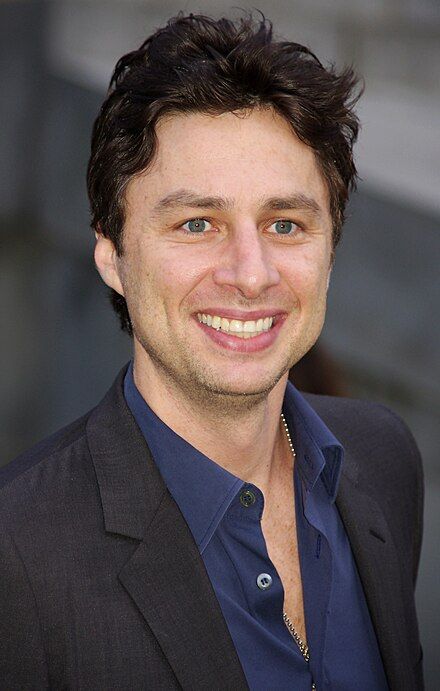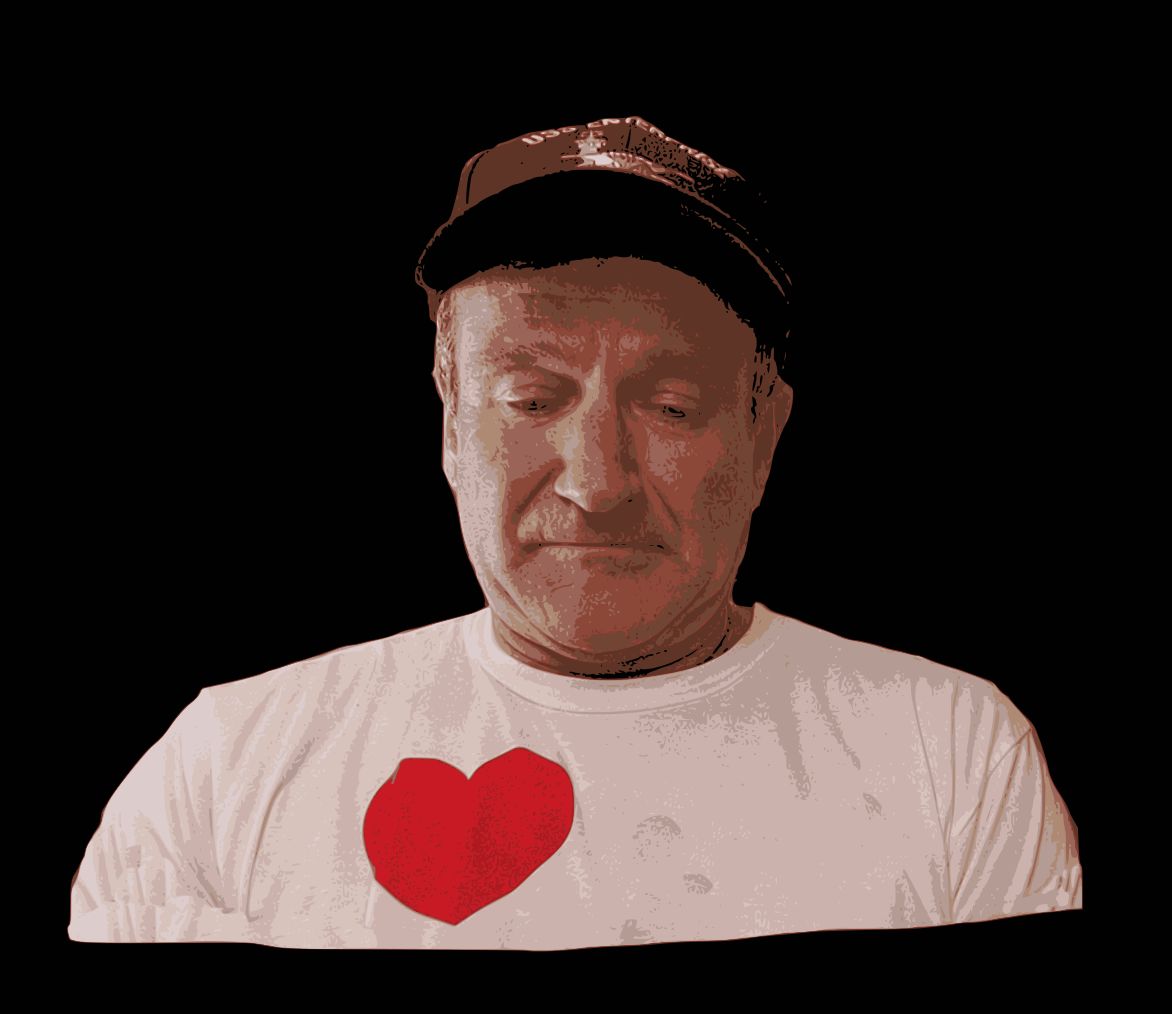
The world collectively mourned on August 11, 2014, when news broke of Robin Williams’ tragic passing at the age of 63. A master of improvisation and dramatic depth, Williams brought unparalleled joy to millions, his performances a vibrant tapestry woven with humor, heart, and an electrifying energy that seemed boundless. Yet, behind the incandescent smile and the whirlwind of characters, there existed a profound duality—an inner world marked by silent battles against darkness, self-doubt, addiction, and depression, struggles that ultimately claimed his life. His story, therefore, is not merely a tale of comedic genius but a poignant illustration of the human spirit’s often-hidden struggles, a narrative that compels us to look beyond outward brilliance to the complex realities of inner turmoil.
Robin Williams embodied a compelling paradox: an improvisational genius who made people feel seen, yet privately wrestled with the fear of invisibility and misunderstanding. This internal conflict, often unseen by his adoring public, fueled what some might describe as ‘saboteur’ patterns, driving him to seek external validation even as he grappled with profound internal pain. His life serves as a powerful case study, not for diagnosis, but for understanding the universal challenges many face—the intricate dance between opposing inner forces, one seeking solace, another striving for expression, one attempting to silence, and another yearning to be heard.
While Williams never explicitly articulated his experiences through the specific lexicon of “saboteurs” and “allies,” his vast contributions to the world—his stories, his jokes, his moments of heartbreak and kindness—eloquently revealed a man engaged in a constant internal dialogue. His journey illuminates the profound impact of these inner voices, demonstrating how they can deeply affect even the most celebrated individuals and highlighting a pervasive struggle that many silently endure, often masked by outward success and an unwavering public facade.
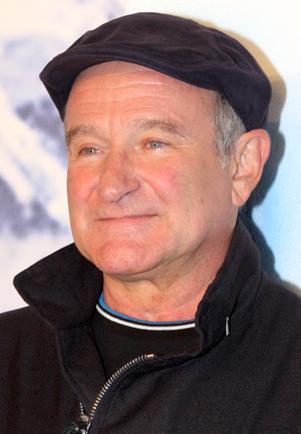
1. **Early Life and the Genesis of His Humor**: Robin Williams was born in Chicago in 1951, experiencing a childhood characterized by material comfort but emotional distance. His father’s corporate career and his mother’s social engagements frequently left him in stretches of solitude within large houses. It was within this quiet solitude that he began to discover and cultivate his unique comedic gift, often finding more connection with household staff than with his busy parents.
A naturally quiet and shy child, Williams found solace and a powerful outlet in humor. This gift, inspired by his witty mother, became his early lifeline, allowing him to fill empty spaces with a rich tapestry of personas, voices, and entire narrative worlds. These imaginative creations, initially visible only to him, eventually became the extraordinary talents he would share with the world, transforming loneliness into connection and fear into the infectious laughter for which he became known.
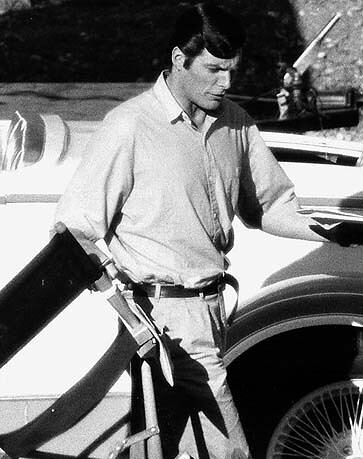
2. **Comedy as a Lifeline—and a Mask**: Williams’ journey into the professional world began after college, where he earned a scholarship to Juilliard, a testament to his raw talent. Here, he forged lifelong friendships, including with Christopher Reeve. His teachers at Juilliard quickly recognized his genius, yet also felt that the school’s traditional training methods were insufficient to contain his boundless creativity. The message was clear: he was extraordinary, but fundamentally human, with a unique spirit that defied conventional categorization.
His career truly took flight with his role as Mork from Ork in “Mork & Mindy,” a character that perfectly showcased his joyfully chaotic and uncontainable nature. Williams was renowned for his ability to go off-script, riffing wildly until his co-stars broke character, a spontaneous untamed quality that became his signature and a calling card for Hollywood. For Williams, comedy was not merely a hobby; it was a profound form of survival, a means to transform personal loneliness into universal connection and deep-seated fear into liberating laughter, all while establishing himself as a beloved star.
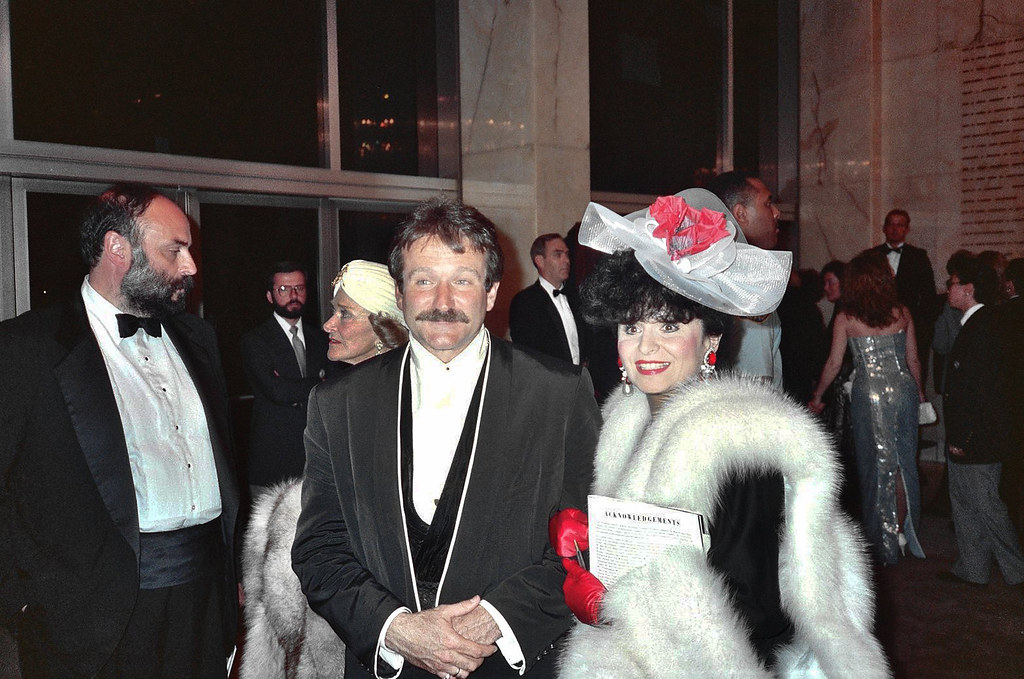
3. **The Sad Clown and the Inner Child: The Duality of Performance**: Within Robin Williams, a powerful ‘Saboteur’ voice emerged, often referred to as “The Sad Clown.” This internal narrative whispered, “You’re only lovable when you make others happy. Your pain doesn’t matter—only your performance does.” This deeply ingrained belief system drove his compulsive need to entertain, even during periods of immense personal suffering. It fostered the dangerous notion that external validation and being liked were paramount, eclipsing the importance of his own authenticity and well-being.
This internal pressure to constantly perform, regardless of the personal cost, is a widely recognized challenge, often manifesting in individuals grappling with people-pleasing tendencies or imposter syndrome. It underscores how the ‘Sad Clown’ saboteur can operate, compelling individuals to prioritize the happiness of others above their own profound needs. Williams’s public persona, while brilliant, often masked the quiet anguish underneath, a testament to this saboteur’s persuasive power.
However, Williams also possessed a formidable ‘Ally’ voice: “The Inner Child.” This counter-narrative offered a message of inherent self-worth: “You are enough without applause. Your imagination is not an escape—it’s a gift.” Robin frequently accessed this childlike wonder, spontaneity, and playfulness, employing it not merely as a distraction but as a powerful tool to forge meaning from the chaos of his inner and outer worlds.
This exceptional ability to tap into and utilize ‘The Inner Child’ ally provided him with an extraordinary wellspring of creativity. It offered him a unique and often profound perspective on life’s multifaceted challenges. His moments of unbridled joy and imaginative flights, whether on screen or stage, were often direct manifestations of this powerful inner ally, allowing him to connect with audiences on a deeply human level, transcending mere entertainment.
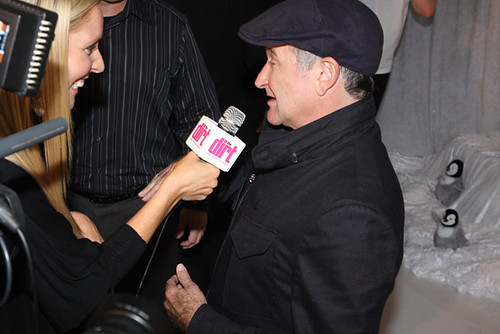
4. **The Addict and the Inner Seeker: Battles with Escape and Purpose**: Robin Williams wrestled for decades with the insidious grip of addiction, a struggle driven not by a perceived weakness of character but by a potent internal ‘Saboteur’ voice: “The Addict.” This voice insidiously suggested, “You can’t handle this pain. Escape it. Numb it. Disappear.” It represented a profound fear of confronting and processing the magnitude of his unfiltered emotions, pushing him towards substances as a means of oblivion.
This deeply ingrained pattern of seeking escape from discomfort is a struggle shared by many, often rooted in an inherent fear of vulnerability or an inability to effectively process intense, overwhelming feelings. Williams’s candor about his addiction, even turning his experiences into punchlines, offered glimpses into this relentless internal battle, demonstrating how the ‘Addict’ saboteur can become a powerful, destructive force in one’s life, promising false respite from pain.
Opposing this, Robin also cultivated an enduring ‘Ally’ voice: “The Inner Seeker.” This voice offered a path to resilience and connection: “You are not alone. Pain doesn’t make you broken—it makes you human.” At his healthiest, Williams actively pursued meaning and recovery, embracing spirituality and service as pathways to healing and connection, rather than succumbing to avoidance.
His consistent engagement with ‘The Inner Seeker’ ally underscored a profound human capacity for growth, for finding purpose amidst struggle, and for seeking genuine connection rather than isolation. This ally enabled him to articulate his experiences with disarming honesty, transforming personal torment into a shared human experience and offering a beacon of hope for others navigating similar internal landscapes.
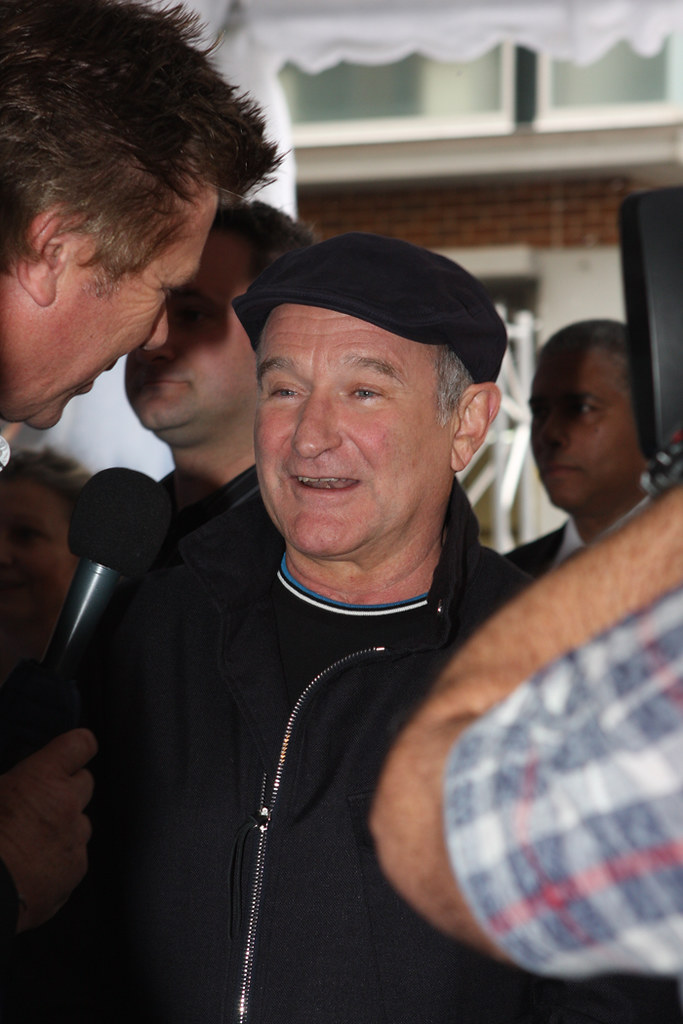
5. **The Critic and the Compassionate Witness: Navigating Insecurity and Vulnerability**: Despite his immense accolades and universal adoration, Robin Williams publicly admitted to profound insecurity, carrying what he described as imposter syndrome deep within. This was the work of his ‘Saboteur’ voice, “The Inner Critic,” which relentlessly whispered, “You’re a fraud. You’re not as kind or talented as people think. Don’t let them find out.” This internal barrage undermined his self-worth, making him question his intrinsic value regardless of external success.
The feeling of being a ‘fraud’ and the presence of a relentless ‘Inner Critic’ saboteur are prevalent experiences across various professions and walks of life, impacting self-worth and hindering potential. For Williams, an artist whose identity was so interwoven with public perception, this critic represented a constant battle against self-doubt, a shadow that dimmed even his brightest moments of triumph and recognition.
In counterpoint, Williams nurtured an ‘Ally’ voice, “The Compassionate Witness.” This voice offered him the profound insight: “You see others deeply. Let someone see you, too.” Through diligent engagement with therapy, the unwavering support of friends, and remarkably honest public interviews, Robin began to open up about his struggles. He modeled vulnerability with a fierce tenderness that resonated deeply with audiences and peers alike.
This embodiment of ‘The Compassionate Witness’ ally allowed him not only to embark on a path of personal healing but also to inspire countless others. By sharing his own vulnerabilities, he gave permission for others to embrace their authenticity, to seek understanding, and to confront their own inner critics with a newfound sense of courage and shared humanity.
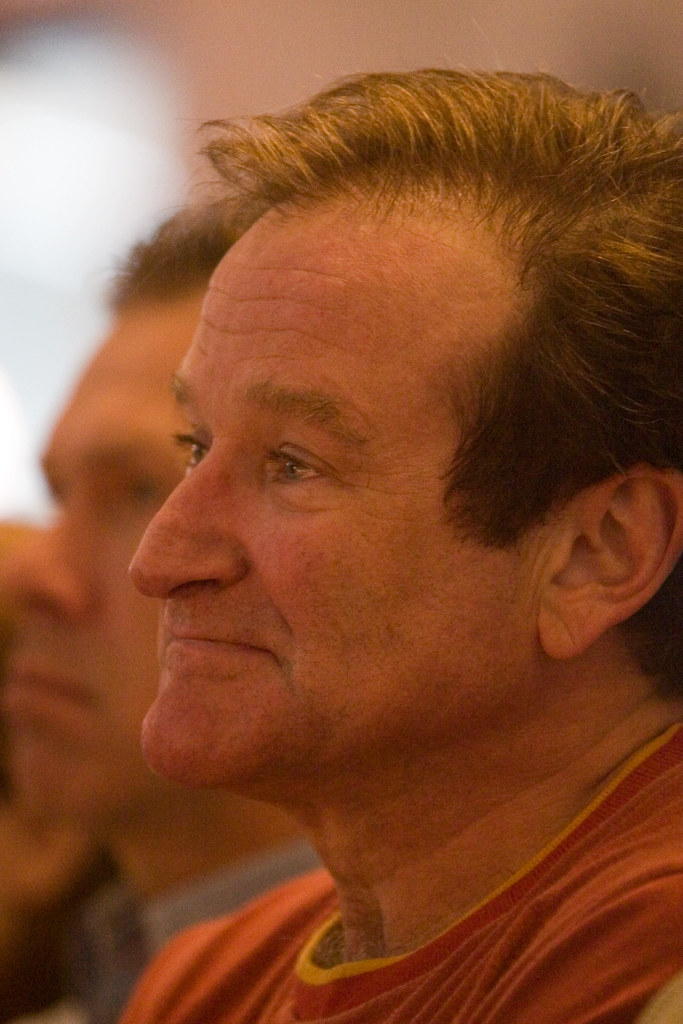
6. **The Overgiver and the Boundaried Self: The Toll of Selflessness**: Robin Williams was famously generous, a man who consistently gave of his time, money, and boundless energy to others. However, this profound generosity often came at a significant cost to his own health and emotional boundaries, a pattern driven by the ‘Saboteur’ voice known as “The Overgiver.” This voice insisted, “It’s selfish to rest. You exist for others.” It compelled him to prioritize the needs and happiness of those around him, often to his own detriment.
This pattern, influenced by ‘The Overgiver’ saboteur, frequently leads to burnout and a diminished sense of self, a common experience for many individuals who habitually place others’ needs above their own. For Williams, whose comedic mission was so deeply tied to making others happy, this saboteur presented a particularly challenging internal conflict, as his giving nature was intrinsically linked to his public identity and perceived value.
Despite this powerful saboteur, Williams showed glimpses of developing an essential ‘Ally’ voice: “The Boundaried Self.” This ally offered a crucial message of self-preservation: “You’re allowed to rest. You don’t have to disappear to be loved.” In his later years, there were discernible signs of a man learning the difficult art of saying no, of actively working to heal, and of striving to protect his peace and well-being.
The development of ‘The Boundaried Self’ ally, while a hard-won battle, demonstrated an ongoing journey towards prioritizing one’s personal needs and establishing healthier emotional limits. This vital progress, though perhaps incomplete, highlighted the profound importance of self-care and the establishment of healthy boundaries as fundamental components of sustained emotional fitness and overall well-being.
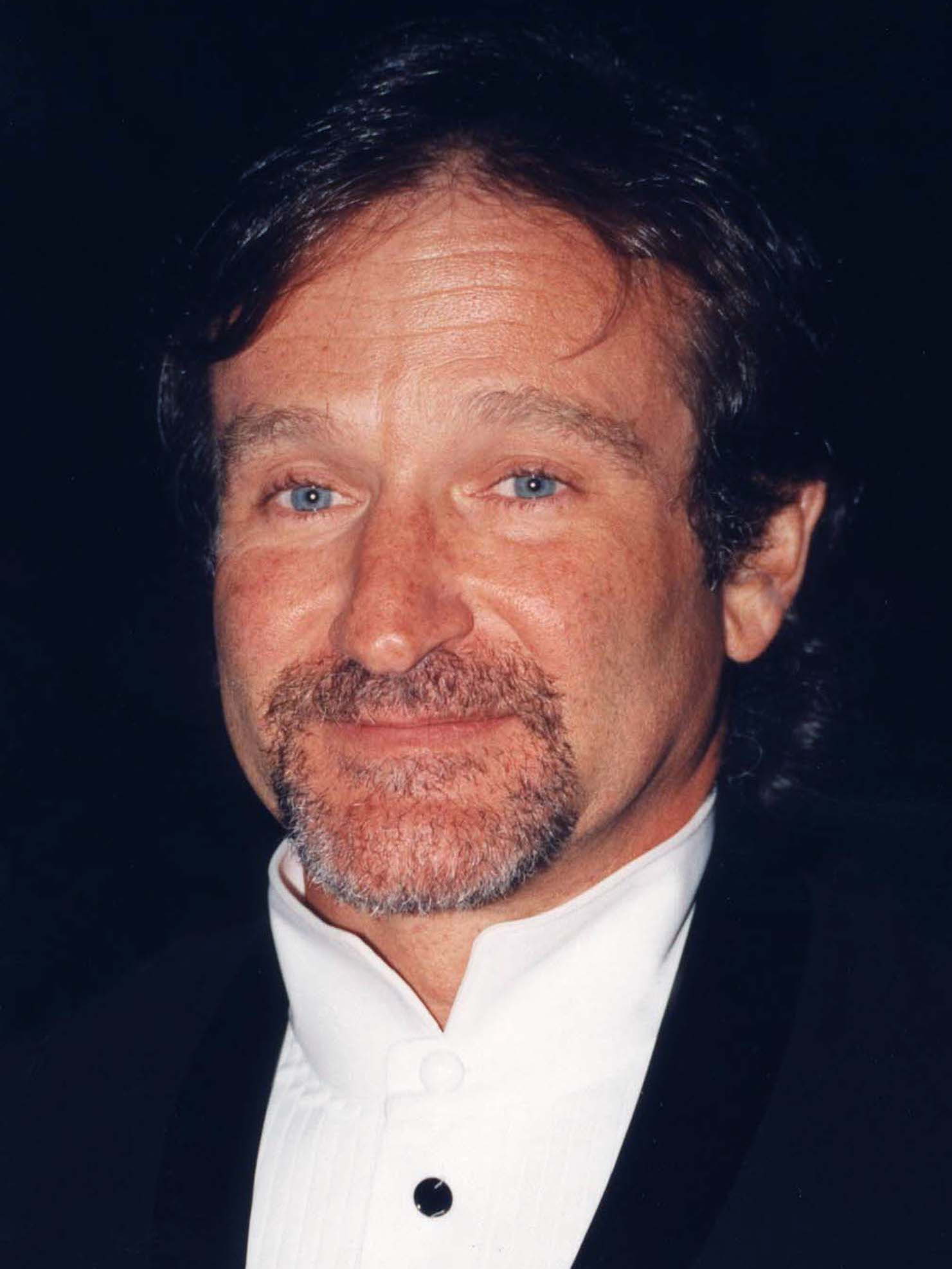
7. **The Invisible One and the Remembered One: The Fear of Being Unseen**: Beyond the vibrant tapestry of characters and uproarious laughter, a quieter, more insidious ‘Saboteur’ voice often haunted Robin Williams: “The Invisible One.” This internal narrative whispered, “You are too much. Or not enough. Either way, people won’t stay.” This profound sense of loneliness, paradoxically amplified by his immense fame, manifested as a deep-seated fear of being misunderstood or, worse, abandoned. His dramatic work, often infused with raw vulnerability, frequently reflected this pervasive internal struggle.
‘The Invisible One’ saboteur can inflict profound feelings of isolation, leading individuals to question their inherent worth and connection. It fosters a pervasive fear that true, authentic connection is unattainable, driving a wedge between one’s true self and the world. For Williams, whose entire persona was built on connecting with millions, this internal voice represented a particularly agonizing battle, making him feel unseen even when he was most in the spotlight.
Yet, opposing this formidable saboteur, Robin Williams was profoundly influenced by an ‘Ally’ voice, one that might be posthumously recognized as “The Remembered One.” This voice offers a message of inherent value and lasting connection: “You are loved beyond the room you’re in. You are seen, even when you cannot see yourself.” The overwhelming outpouring of grief and love after his death reflected a truth that he may never have fully grasped in life: how deeply and universally he mattered.
This posthumous recognition of ‘The Remembered One’ ally highlights a crucial truth for all: our true value and the depth of our connection with others often extend far beyond our immediate perception. For Williams, the collective mourning underscored a profound sense of lasting significance, a testament to his impact that transcended his personal struggles and offered a beacon of enduring human connection.
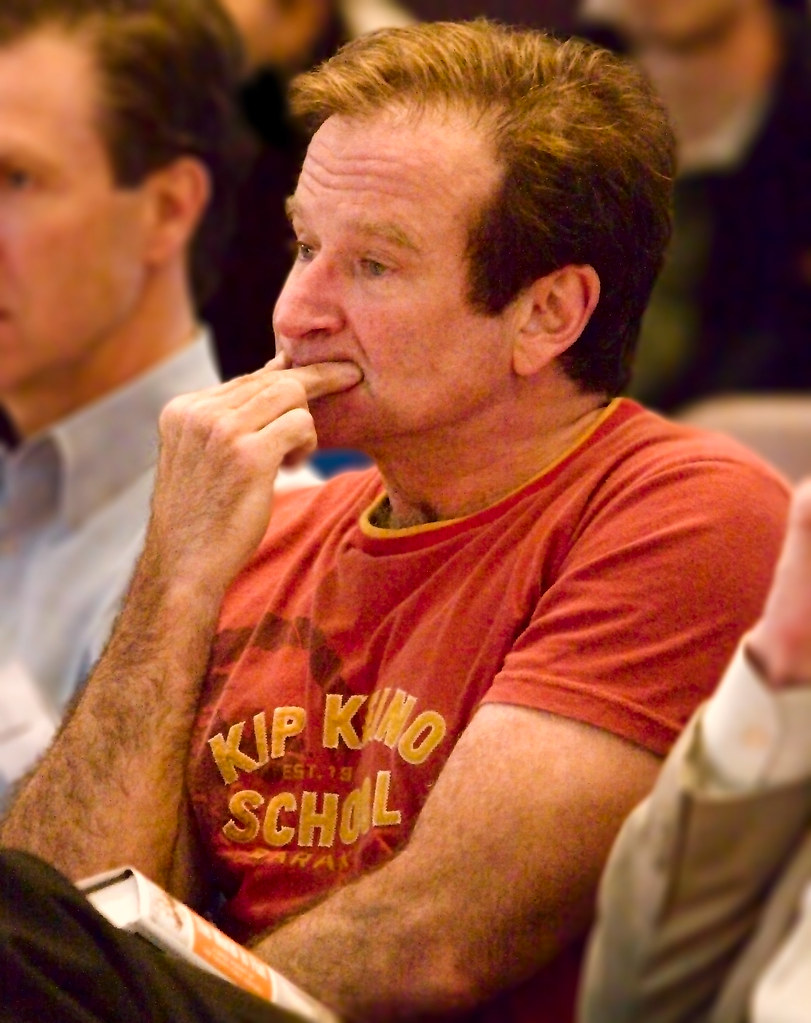
8. **The Onset of Illness: Battling Lewy Body Dementia**: In his final years, a devastating shift began to unfold in Robin Williams’s life, overshadowing his relentless internal battles with a new, formidable adversary. What had initially been dismissed as the natural effects of aging or the resurgence of long-fought personal demons soon revealed itself to be something far more insidious. He experienced increasing difficulties with memory, finding lines harder to remember, and a pervasive anxiety began to loom larger, trapping him in a mind that had always been quicksilver, now flickering and unreliable.
Doctors initially suspected Parkinson’s disease, a diagnosis that partially explained the physical and mental changes observed. However, behind the scenes, Williams was wrestling with far more than just substance abuse and inner turmoil; he faced a profound physical and mental decline. His suffering intensified, marked by episodes of paranoia, deepening depression, and a gradual erosion of his physical capabilities, painting a poignant picture of a man confronting an relentless, unseen enemy.
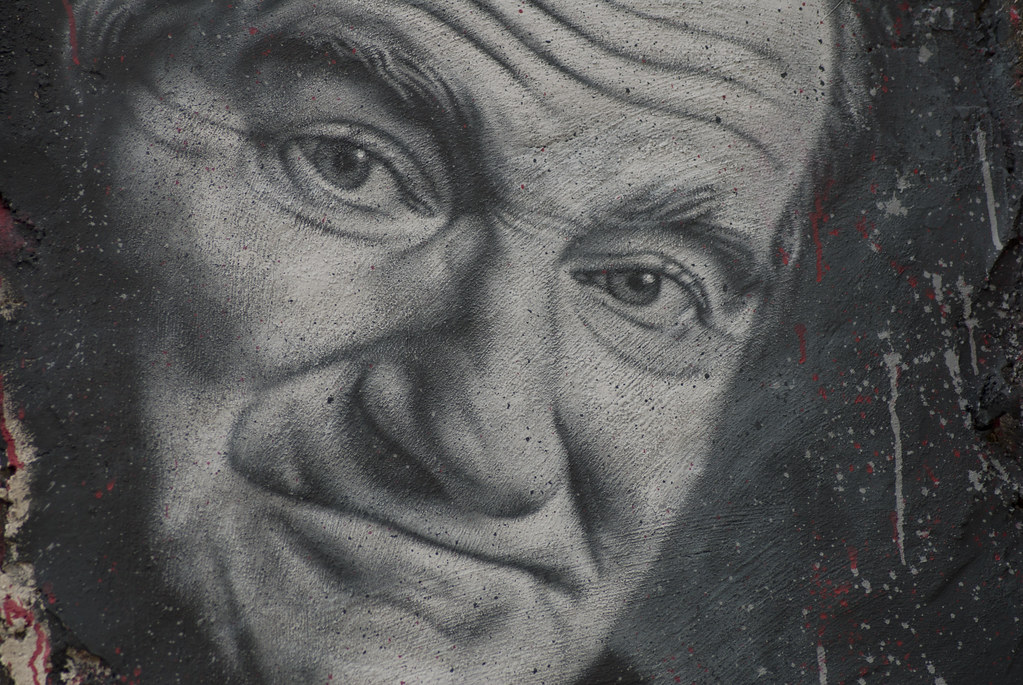
9. **The Unseen Battle: Misdiagnosis and the Nature of Lewy Body Dementia**: The true culprit behind Robin Williams’s deteriorating health in his final years was revealed only after his death: Lewy body dementia. This ruthless and widely misunderstood neurological disorder systematically attacks cognition, movement, sleep, and mood. For a performer whose identity was intricately woven from speed, recall, and unparalleled improvisation, the progressive loss of these faculties was, in essence, a terrifying erasure of self, a direct assault on the very core of his being.
Understanding the nature of Lewy body dementia is paramount, not to sensationalize his final chapter, but to respectfully honor the immense suffering he endured. This cruel disease has the capacity to render the familiar utterly strange, to twist the simple into confusion, and to make the very self feel profoundly unreachable. It often blurs the lines of reality, manifesting in fluctuations in alertness, vivid hallucinations, and significant motor difficulties, all of which progressively undermine one’s grasp on their own existence.
The world learned the full truth of his illness only after his passing in 2014, a revelation that profoundly reframed the public’s collective grief. What initially appeared to be a decision made in a moment of despair was, in a critical light, also the devastating culmination of a relentless, unseen illness. This understanding does not diminish his agency or the complexity of his life, but rather acknowledges the true, profound battle he fought with unwavering courage against an overwhelming biological adversary.
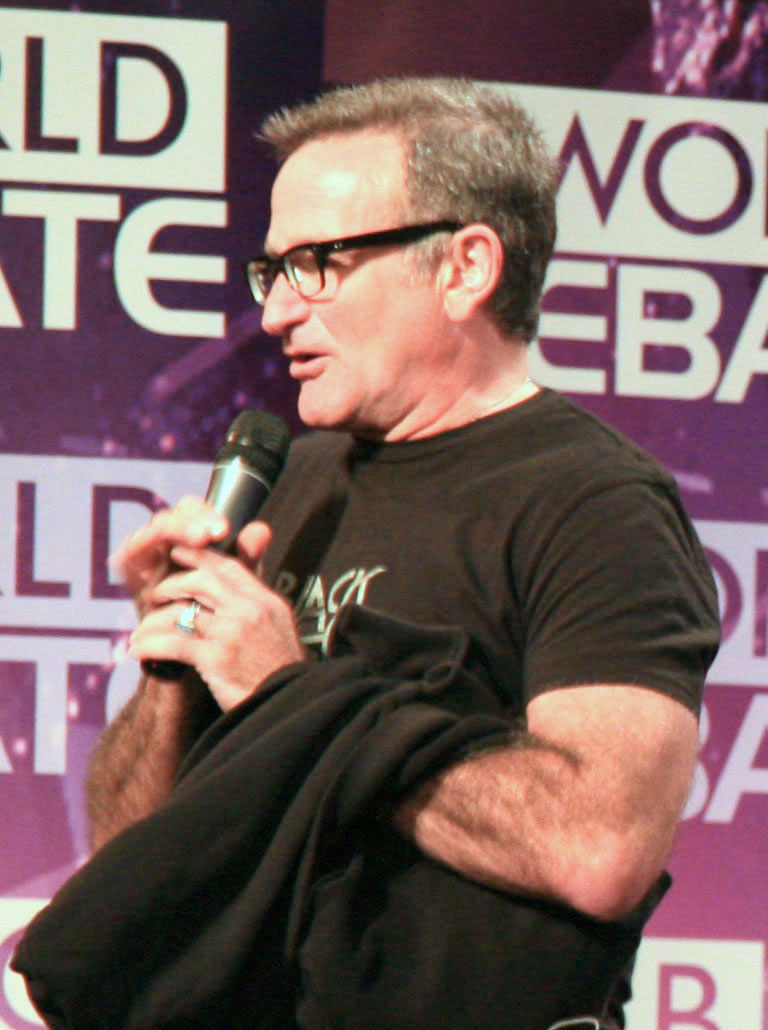
10. **A Legacy of Laughter and Vulnerability: Redefining Genius**: Robin Williams did not simply endure his pain; he masterfully metabolized it into art, generosity, and an electrifying presence that captivated audiences worldwide. His narrative serves as a poignant reminder that inner saboteurs can whisper their doubts even amid immense greatness, and conversely, inner allies must be diligently practiced and cultivated, rather than merely presumed. He fundamentally reshaped comedy, blending stand-up, sketch, and acting into a dynamic, elastic, and profoundly alive art form that continues to inspire.
His influence resonated deeply through a generation of performers, including luminaries like Jim Carrey, Steve Martin, and Whoopi Goldberg, all of whom learned from his extraordinary fearlessness to embrace risks and shatter conventional molds. Yet, perhaps his most enduring and transformative gift was what he offered beyond the spotlight: he normalized candid conversations about mental health and addiction in a way that felt genuinely safe. He chose not to preach but rather to smile, shrug, and articulate profound truths, skillfully wrapped in the protective cloak of humor, thereby granting countless individuals permission to be honest about their own internal struggles.
It is often tempting to romanticize the connection between pain and creativity, to believe that suffering is the sole fuel for artistic brilliance. However, this narrative risks flattening artists into mere tropes and makes their suffering seem inevitable, or even worse, necessary. Robin Williams was not great *because* he hurt; he was undeniably great *despite* it. His genius was not born of torment but rather of extraordinary discipline and boundless generosity—thousands of hours dedicated to honing his craft, choosing kindness backstage, and consistently showing up for people who needed a laugh far more than he needed rest.
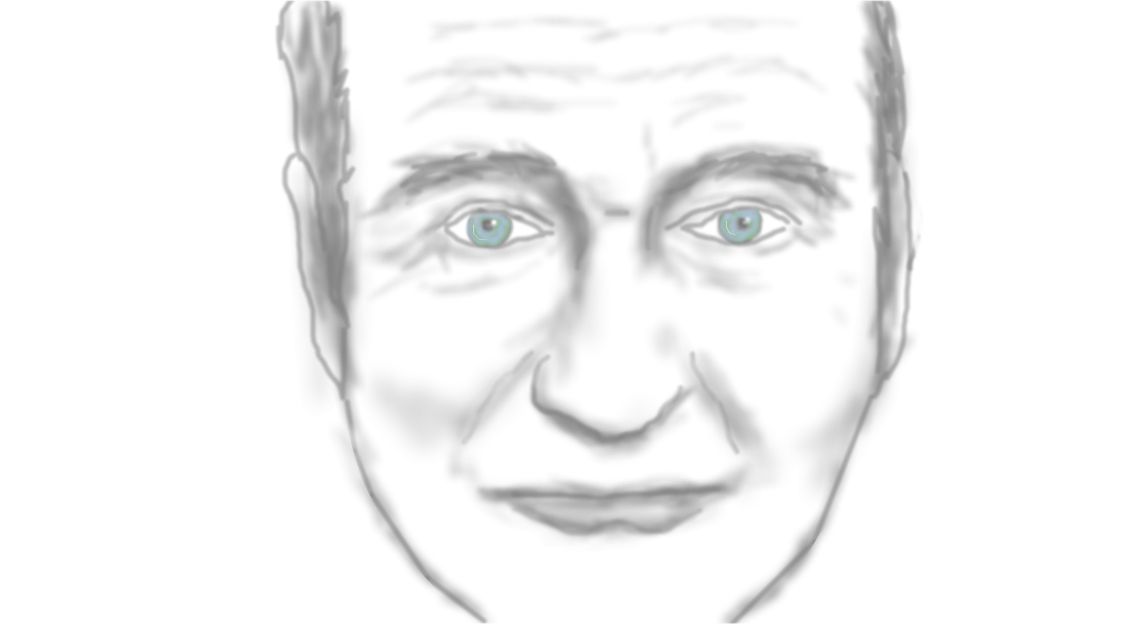
11. **The Societal Reckoning: Robin Williams as a “Canary in the Coal Mine”**: Robin Williams’s suicide, a profoundly tragic event on August 11, 2014, sent shockwaves across society, prompting a long-overdue collective reckoning with the silent epidemic of mental illness. His tragic demise served as a stark, undeniable reminder of the devastating toll that untreated emotional suffering can inflict, even upon the most outwardly successful and beloved individuals. It compelled many to confront the stark reality that despite his wealth and access to top-tier mental health resources, effective solutions for his profound suffering were tragically lacking, extending far beyond the conventional realm of therapy.
In this context, Robin Williams tragically epitomized a prominent “canary in the coal mine,” succumbing to society’s pervasive neglect of emotional well-being. Since his passing, innumerable others have unfortunately met similar fates, underscoring that these poignant instances serve as vital alerts demanding our urgent attention and immediate action. The alarmingly low average level of emotional fitness among Americans, where flourishing is far from the norm, points to a pervasive pandemic of emotional suffering that can be directly attributed to generations of oversight and a systemic failure to prioritize this crucial aspect of human health.
Consider the staggering statistics: over 50 million American adults, or one in five, are officially diagnosed with a mental illness. Among young Americans, the situation is even more dire, with nearly one in three teenagers reporting poor mental health and two in five feeling persistently sad or hopeless. Suicide, shockingly, ranks as the second-leading cause of death among individuals aged 15 to 24, underscoring the severe deficit of emotional fitness at the extreme low end of the emotional spectrum. This pervasive suffering, often masked by outward appearances, necessitates a radical shift in societal priorities.
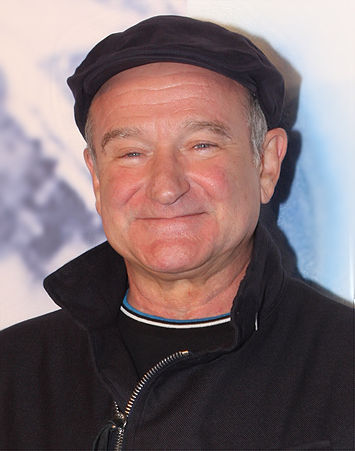
12. **The Imperative for Emotional Fitness: Vivir’s Call to Action**: Emotional fitness is not merely a desirable trait but a crucial foundation for overall well-being and resilience in navigating life’s inherent challenges. It encompasses the vital ability to effectively confront reality and deal with it positively, fostering good mental health, improving relationships through enhanced communication and empathy, and building the resilience necessary to bounce back from setbacks. Furthermore, it cultivates self-awareness, leading to personal growth, and contributes significantly to overall well-being, performance in various life areas, and even physical health by mitigating the impacts of chronic stress.
While the magnitude of emotional suffering may appear daunting, it is, thankfully, not insurmountable. However, effectively addressing this crisis necessitates confronting its root causes and facilitating the deep healing of emotional wounds, a task for which the overwhelmed and often superficial approach offered by the current mental health system proves tragically inadequate. Waiting for the existing system to rectify this pervasive issue is no longer a viable option; it has, regrettably, failed countless individuals, leading to unnecessary suffering and tragic loss of life, as evidenced by Williams’s own experience. It is now imperative that we collectively prioritize emotional fitness, dedicating ourselves to cultivating emotional strength and well-being directly.
The Vivir Emotional Fitness Institute emerges as a direct response to this urgent societal need, embodying a mission to enrich clients’ emotional fitness and empower them to consistently confront life’s challenges with serenity and effectiveness. Their goal is to support individuals on a lifelong journey toward embodying their authentic, positive selves and flourishing in every aspect of their lives, utilizing a standardized, structured approach refined over nearly four decades. Central to their methodology is the proprietary Emotional Updating unconscious mental technique, designed to liberate clients from the emotional discomfort caused by past traumatic experiences and empower them to untrigger negative emotional responses. Robin Williams’s favorite film, “Dead Poets Society,” featured his character, John Keating, famously urging students to “Carpe Diem!” At Vivir, this call to seize the day, to live life to the fullest by confronting and healing emotional wounds, resonates deeply as a guiding principle for a more emotionally resilient future.
Robin Williams’s life, a vibrant tapestry of boundless humor and profound hidden pain, stands as an indelible testament to the complex inner world each of us navigates. His journey illuminates the crucial interplay between our saboteurs and allies, reminding us that even the most celebrated among us can grapple with silent struggles. His legacy extends far beyond the laughter he so generously shared; it is a profound call to empathy, a stark reminder of the urgent need for enhanced emotional fitness, and an invitation to actively confront our own inner dialogues, not to escape, but to truly live—to “Carpe Diem”—with authenticity and a deeper understanding of our shared humanity. His story, ultimately, challenges us to look beyond the dazzling performance to the essential, vulnerable human spirit within.

